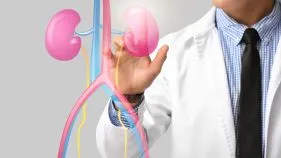
Understanding Kidney Function: Why Healthy Kidneys Are Vital for Your Body
Your kidneys are small, bean-shaped organs located on either side of your spine, just below your rib cage. Although they may be small in size, they play a big role in keeping your body healthy and balanced. When your kidney function is optimal, your body efficiently removes waste, regulates blood pressure, and maintains essential nutrients and fluids. But when kidney function declines, it can lead to serious health complications—some even life-threatening.
In this article, we’ll dive into what kidney function really means, why it’s crucial for your health, how to detect issues early, and ways to keep your kidneys strong for life.
What Is Kidney Function?
Kidney function refers to how well your kidneys filter blood and maintain a healthy internal environment. Each kidney contains about one million tiny filtering units called nephrons, which remove waste and extra fluid from the bloodstream, turning it into urine.
Key roles of the kidneys include:
Filtering waste products and toxins from the blood
Balancing fluid and electrolytes (sodium, potassium, calcium)
Regulating blood pressure
Producing hormones that support red blood cell production and bone health
Maintaining pH balance in the body
How Is Kidney Function Measured?
Doctors use several tests to assess kidney health:
1. Glomerular Filtration Rate (GFR)
Estimates how much blood your kidneys filter per minute
A GFR of 90 or above is considered normal
Below 60 may indicate kidney disease
2. Serum Creatinine Test
Measures creatinine, a waste product
Elevated levels may signal reduced kidney function
3. Urine Albumin Test
Checks for protein (albumin) in urine, which can be an early sign of kidney damage
Signs of Reduced Kidney Function
In early stages, kidney problems may not show any symptoms. As function declines, you may experience:
Fatigue and weakness
Swelling in the hands, feet, or face
Foamy or bloody urine
Changes in urination frequency
Shortness of breath
Persistent itching
High blood pressure
Loss of appetite
If you notice these signs, it’s important to get checked by a doctor as soon as possible.
Common Causes of Decreased Kidney Function
Several health conditions and lifestyle factors can impact how well your kidneys work:
High blood pressure (Hypertension)
Diabetes
Chronic dehydration
Kidney infections or stones
Autoimmune diseases (e.g., lupus)
Overuse of certain medications (especially NSAIDs)
Smoking and excessive alcohol use
Family history of kidney disease
How to Keep Your Kidney Function Healthy
✅ Stay Hydrated
Drink enough water to help your kidneys filter waste efficiently.
✅ Manage Blood Pressure and Blood Sugar
These are the top two causes of kidney disease—control them with diet, exercise, and medications.
✅ Eat a Kidney-Friendly Diet
Limit salt, processed foods, and excessive protein. Include fruits, vegetables, and whole grains.
✅ Avoid Over-the-Counter Painkillers
Frequent use of ibuprofen, aspirin, or naproxen can damage kidneys over time.
✅ Don’t Smoke
Smoking slows kidney function and increases the risk of kidney disease.
✅ Get Regular Checkups
Routine screening helps detect early signs of kidney issues—even before symptoms appear.
Expert Kidney Function Evaluation at Prabhakar Bhurke Clinic
At Prabhakar Bhurke Nephrology, Urology, and Gynaecology Fertility Clinic, we offer comprehensive kidney health assessments led by Dr. Sandip Prabhakar Bhurke, a renowned Kidney (Renal) Nephrologist Specialist.
Whether you’re managing diabetes, hypertension, or just want to check your kidney function, we provide:
Advanced diagnostic tests
Personalized treatment plans
Diet and lifestyle guidance
Clinic consultations, home visits, and video calls
Our centers in Lokhandwala (Andheri West) and Borivali West, Mumbai, are equipped to provide state-of-the-art nephrology care with compassion and precision.
Protect Your Kidney Function—Start Today
Your kidneys do a lot behind the scenes. Take charge of your kidney health by booking a consultation with our experts. Early action can prevent long-term complications and support a healthier future.

